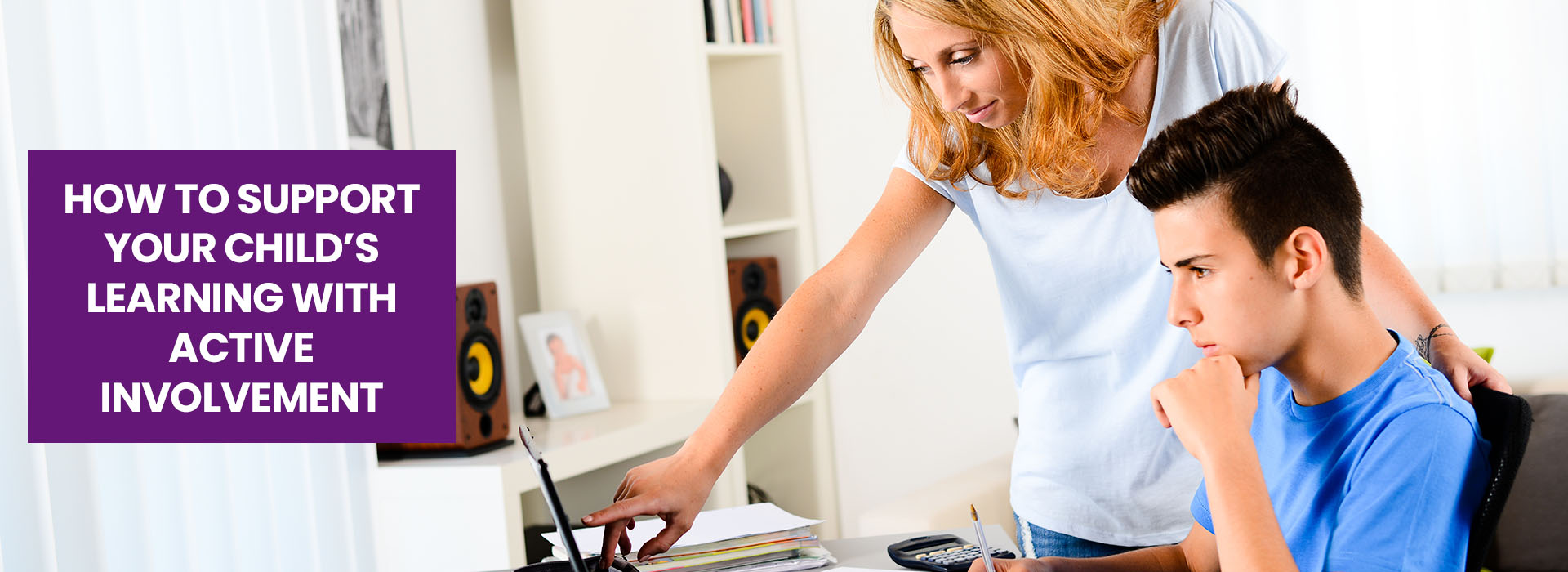

Prashant Pundir
How to Support Your Child’s Learning with Active Involvement
In today’s day and age, parents want their children to be active learners. It is important to get the best out of children and nourish their involvement in studies. Active learning is a great way to enhance the scope of education for children and make them think independently.
Students become capable of putting up questions, solve complex problems, and move towards long-term confinement.
The biggest challenge for parents is to get actively involved in their child’s learning. The first and foremost thing for parents to do is to get involved in the admission process of their children.
As the admission process for schools has become complex in the modern age, parents have to get more involved in the school selection and admission procedure of their children. However, is it the only responsibility of parents?
Well, clearly no. Involvement with children is a continuous process and goes well beyond any particular event.
Many researches have been carried out to signify the importance of parents involvement in a child’s education, and the results that follow. In fact, an NEA policy brief states “Families, parents, caregivers, and community members are partners in creating dynamic, flexible community schools. Their engagement is not limited to a specific project or program, but is on-going and extends beyond volunteerism to roles in decision making, governance, and advocacy.”
Do you as a parent ask your child about how their day went at the school and what did they do? Do you mostly get to hear redundant answers like “Well, good! “Great!” etc.?
If yes, then it’s time to stop and think about the situation and take the necessary steps to get your child to become more responsive and enthusiastic. Active involvement is just the right path for you to follow and change the dynamics of your relationship with your child.
Active Involvement
Getting actively involved in children’s education sounds pretty simple. Talk to them about their schooling, daily study routine, etc. Right? But it goes way beyond that.
Involvement desires your constant support and encouragement towards children in all aspects of their lives. May it be educational, schooling activities or the time they spend at home. This nourishment allows the children to feel better about themselves and believe that there is a support system looking out for them.
It helps them punch above their weight and achieve tremendous amounts of success, eventually leading to a bigger and brighter future.
This simply happens because involvement formulates a healthy relationship between the child and the parents. Parents care, nurture and cooperate with their children on a day-to-day basis and create a wholesome environment for the children to flourish.
Moreover, parents can communicate about life in general with their children, make them comfortable with failure and help them overcome all the hurdles. It helps build a holistic personality for children. It is usually observed that children tend to feel more joyful and are more willing to give their best in education if they feel an active involvement of parents in their lives.
Therefore, active involvement definitely leads to a healthy parent-child relationship and establishes their bond further. It helps to sustain children’s emotional, psychological, social, academic, and intellectual well-being.
How Parents Involvement Helps
As parents, you would want to help your children in the best ways possible but also not take up their space and allow them to grow independently as well. Having explained what active involvement is, let us highlight some of its noticeable factors that help children.
1. Better Academic Outcome
Extensive research conducted over the past forty years by the Michigan Department of Education indicates that when parents are engaged in their children’s education academic achievement increases. Parents’ involvement can help children get better grades, test scores, become more confident, and excel in other activities as well.
2. Improved Motivation and Positive Attitudes
As parents, it is important for you to not burden them with the pressure of success and good grades. You must be able to talk to your children about education very lightly, just like any other aspect of life.
Such communication is contagious and makes children feel relaxed about their studies. Children thrive on such positivity and motivate themselves to give their best in everything that they do. This attitude then rubs off on their schooling activities, academic aspirations, and overall personality.
3. Better Behaviour
Children who have a healthy environment at home, where parents do not make their studies the red-hot topic all the time, tend to behave better and calmer in classrooms. When children understand the true value of education and its meaning and significance in their lives, they are able to focus better in the classroom.
This helps them in portraying their best behavior.
Dos and Don’ts
Here, we are highlighting some of the right measures towards getting actively involved in your child’s learning.
Dos:
- Provide a helping hand and guide them in their homework.
- Communication is the key; interact with them calmly and make them feel comfortable around you so that they feel that there is a cooperative environment in which they can share their problems.
- Communicate with their teachers and let them know of the shortcomings of your child if any. Also, take necessary advice from the teachers as to how you can assist best in your child’s education.
- Motivate them to take up new hobbies and participate with them equally.
- Don’t discard their problems and label them as “meager.” What seems small to you could seem very big to your child. Help them with their conflicts and teach them to manage their problems and find effective solutions.
- Encourage them to pursue more creative and artistic tasks.
- Examine their performances in studies, extracurricular activities and note down their strengths and weaknesses.
- As a working parent, it is hard for you to attend every school event your child is participating in. However, if you get an opportunity, make sure you do. Also, explain your absence rightfully to your child when you can’t attend the event. This helps in building a trust relationship.
- Make your children aware of the real-world problems
- Help them believe in their own decisions and bolster their decision-making abilities. It is important for children to back their decisions and go by them right till the end.
- Volunteer in the events and activities as organized by the school.
- Make learning an easy and fun process and observe the learning style of your child. This is because not all children have the same way of learning and grasping information.
- Incorporate the habit of reading in your children. You can read to them for at least 15 minutes a day.
Don’ts
- While you help your children with their homework, it is important for you to not literally do it. Be helpful and make them understand things, but don’t do it for them. Let them do it on their own.
- Don’t push your child to become part of the rat race and give up on the need for maintaining the status quo. Every child has unique abilities. As a parent, you should let them learn and discover what they truly like.
- It is quite easy to be rude or aggressive as a parent, but you must definitely avoid that. Make sure you address your child calmly and with utmost sincerity. If you want to make them aware of their mistakes, do it in a constructive manner. Better communication leads to a better bond.
How do you make sure as parents to get actively involved in your child’s learning? Do you have any other ways to do it? Let us know in the comments.
Looking for a way to make learning more innovative, diverse, and holistic? Check out our Innovator Program that aims to keep learning fun and engaging for your child. Book a Free Trial today.











